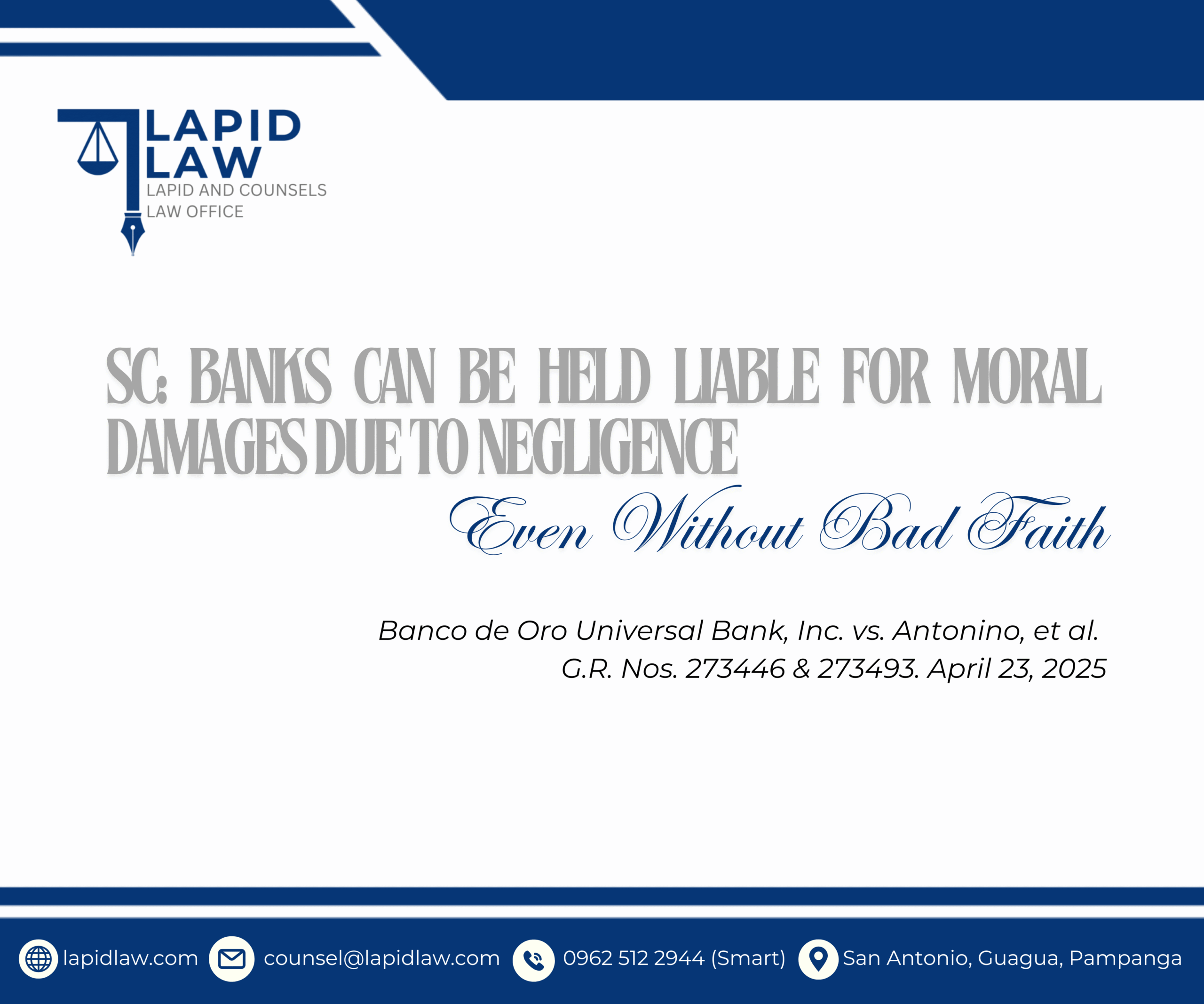Home / News and Updates

Article by: Angelica Garcia
In Banco de Oro Universal Bank, Inc. vs. Antonino, et al. (G.R. Nos. 273446 & 273493. April 23, 2025), the Supreme Court decided that banks may be held liable for moral damages arising from negligence even without bad faith or malice.
The case involved the Antonino sisters, who placed over USD 150,000 in time deposits at BDO’s San Lorenzo Branch in Makati City. They had an agreement with the branch manager that their deposits would automatically roll over if not withdrawn at maturity.
When they later tried to withdraw their money, the bank claimed the deposits had already been released through a demand draft allegedly signed by Angelita. However, she denied signing the document and proved through immigration and passport records that she was abroad at the time.
Both the trial court and the Court of Appeals ruled in favor of Antoninos, noting that they still had the original time deposit certificates, showing that the funds were not withdrawn. The Supreme Court affirmed these rulings and found that BDO failed to exercise the high degree of diligence required of banks.
The Court stressed that moral damages may be awarded even without bad faith or malice when a bank’s negligence causes mental anguish or distress to its clients. BDO’s failure to verify the identity of the person who withdrew the funds and its loss of key documents showed gross negligence.
The SC concluded that banks, being institutions of trust, must always observe extraordinary diligence. Negligence in handling deposits, even without ill intent, can make them liable for moral damage.
Legal Disclaimer:
The content on this website is for general informational purposes only and does not constitute legal advice. Lapid and Counsels Law Office (Lapid Law) makes no representations or warranties regarding the accuracy or completeness of the information provided. Accessing this site does not create an attorney-client relationship. For legal advice specific to your situation, please contact a qualified attorney directly. Do not send confidential information via email or this website until a formal attorney-client relationship has been established.
© Copyright. Lapid and Counsels Law Office 2025. All Rights Reserved.